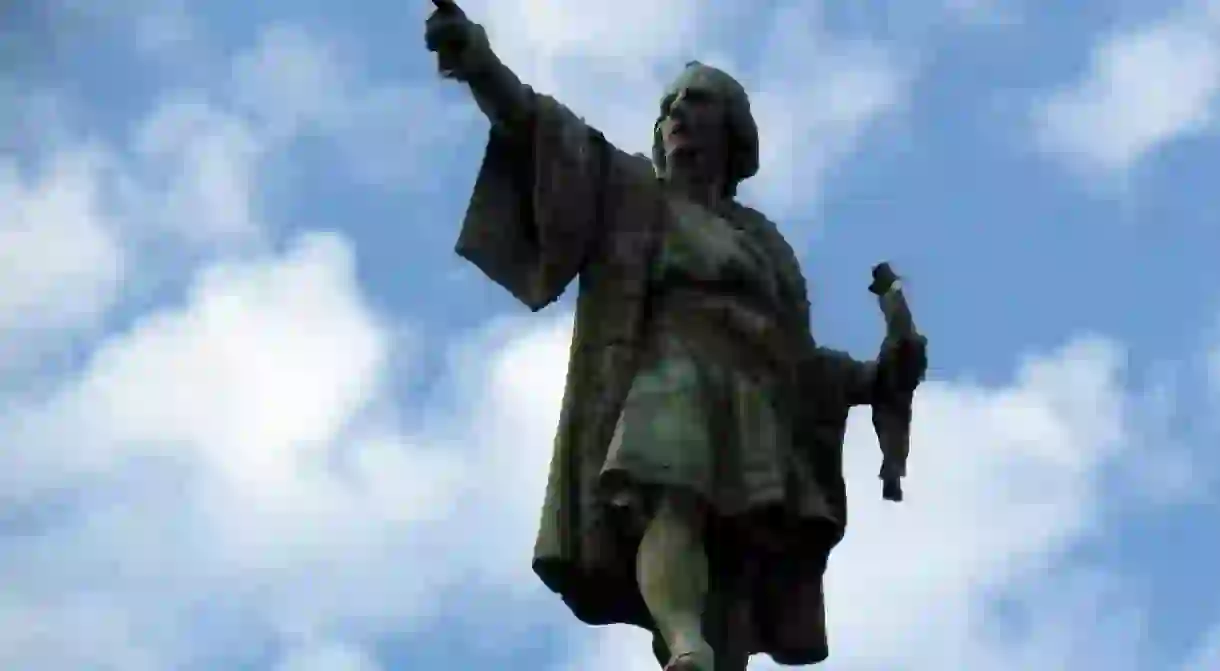Discovering the 500 Year-Old Mystery of Christopher Columbus' Tomb

Visitors to Seville’s enormous Gothic cathedral flock to see the ornate tomb of Christopher Colmbus, who was buried there in 1898. Yet Santo Domingo, the capital of the Dominican Republic, also claims to possess the explorer’s remains. Over 500 years since Columbus’ death, there is still mystery and intrigue surrounding his exact burial spot: read on to find out why.
The confusion has arisen because Columbus’ remains saw almost as much travel as the explorer did during his lifetime. He died in the northern Spanish city of Valladolid in 1506, after returning from his final expedition to the “New World”, only to be moved to a monastery near Seville three years later. But in 1537, the newly opened cathedral of Santa Maria la Menor in Santo Domingo – a territory founded by Columbus – was deemed a much grander burial site, so the Genoese explorer’s remains embarked on their second journey, this time to the Dominican Republic.

What was left of the revered navigator stayed in the cathedral at Santo Domingo until 1795, when France took control of Hispaniola (the Caribbean island that is now split between the Dominican Republic and Haiti) from Spain under the terms of a peace treaty. Not wanting the French to take possession of Columbus’ remains as well, the Spanish had them removed to Cuba, then part of Spain’s extensive global empire. Yet by the end of the 19th century the Spanish Empire was a fading force and in 1898 the Spaniards renounced control of Cuba – as well as handing over Puerto Rico and The Philippines to the United States – in the Treaty of Paris. Columbus was moved back to Seville and buried in a forbidding tomb inside the city’s gigantic cathedral, thus completing his fourth posthumous journey.
But the Dominican Republic claims, not without foundation, that Columbus’ remains never made that final trip back to Spain. In 1877, workers in the Santo Domingo cathedral from which the explorer had supposedly been removed over 80 years earlier discovered a container of remains labelled “The illustrious and excellent man, Don Columbus, Admiral of the Ocean Sea”. Ever since, the Dominicans have claimed that Spain transported the wrong remains out of Santo Domingo in 1795 – a fact which, if true, means that someone else entirely lies in the imposing tomb in Seville’s cathedral. So convinced are the Dominicans that Columbus lies in their soil that in 1992 they opened a colossal (and, it has to be said, rather ugly) cross-shaped monument for the explorer called the Columbus Lighthouse, containing both a mausoleum and a museum.

The story doesn’t end there, though. In 2006, it seemed that the Spaniards finally had conclusive proof that Columbus lies in Seville rather than in Santo Domingo. At the conclusion of a project which had been running since 2002, a forensics team announced that DNA taken from the remains of the explorer’s brother Diego – who is definitely buried in Seville – were an “absolute matchup” with DNA extracted from the purported remains of Columbus in the same city.
When asked about the apparently conclusive findings in Seville, Juan Buatista, director of the Columbus Lighthouse in Santo Domingo, was dismissive; yet again, he claimed that “the remains have never left Dominican territory”. There is, of course, one way to find out who exactly the Dominicans have interred in Santo Domingo, but they have forbidden DNA testing of the remains out of respect for the dead. Some experts have suggested that it’s entirely possible some of Columbus is in Seville and some in Santo Domingo, but until the latter remains are forensically examined we won’t know for sure. The mystery surrounding the final resting place of the “illustrious and excellent” explorer, now over 500 years old, remains unsolved.














